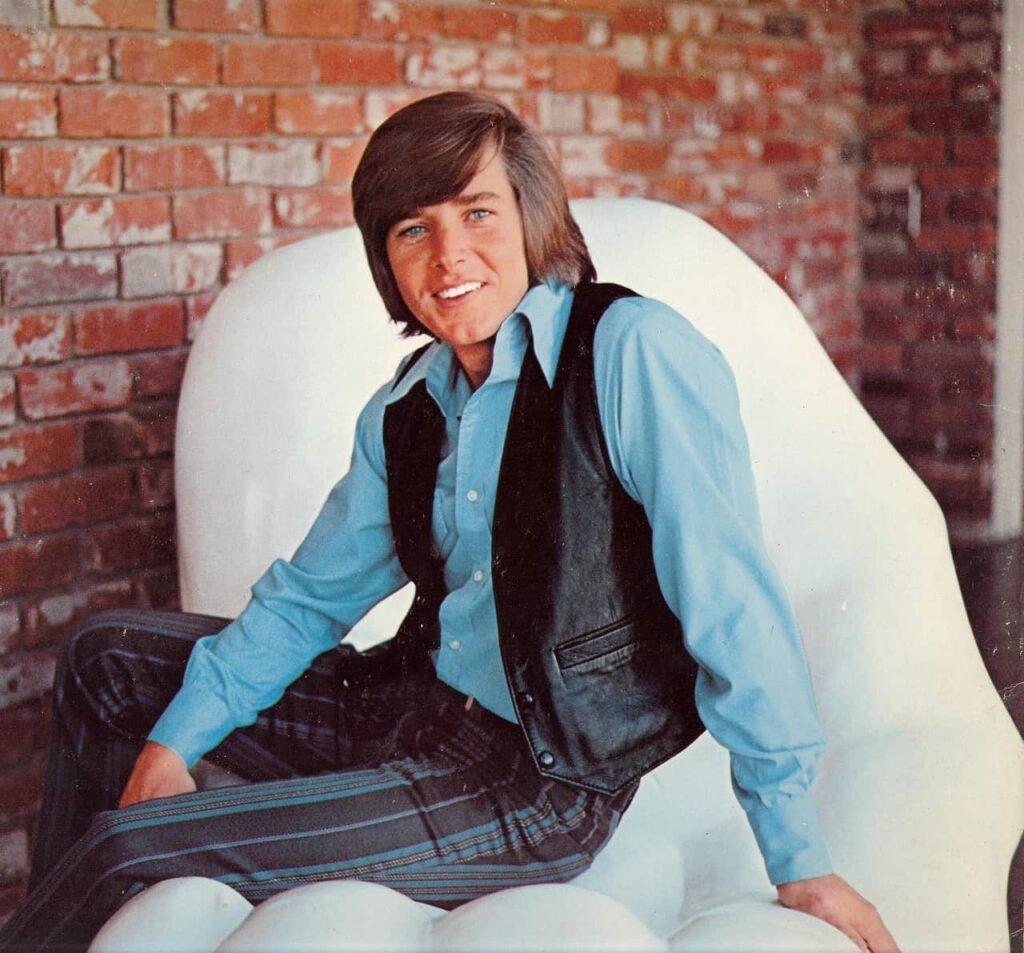
A Teen Idol’s Plea for Enduring Love
Ah, the early 1970s. A time of shifting sands in popular music, but also a period when the clean-cut, wholesome teen idol still held a significant sway over the hearts of millions. And few shone brighter in that firmament than Bobby Sherman. While his image was often associated with innocent crushes and bubblegum pop, the song we’re revisiting today, “Julie, Do Ya Love Me,” revealed a more vulnerable, almost yearning side to the beloved singer. Released in 1970, this track was a significant hit, climbing to an impressive number 8 on the Billboard Hot 100 chart, solidifying Sherman‘s status as a bona fide pop sensation. It was a staple on AM radio, its catchy melody and heartfelt lyrics weaving their way into the fabric of daily life for countless young fans, and even a few older ones who appreciated its simple, earnest charm. The song was featured on his album, also titled “Julie, Do Ya Love Me,” released in 1970.
The story behind “Julie, Do Ya Love Me” isn’t one of dramatic backstage intrigue or scandalous revelations, but rather a testament to the enduring power of a simple, relatable sentiment. Written by Bobby Sherman himself and Jackie Mills, the song emerged from a period when Sherman was not just a performer, but also dabbling more deeply in songwriting. It speaks to a universal human experience: the uncertainty of love, the desire for reassurance, and the longing for a lasting connection. Imagine, if you will, the backdrop of this era – a world on the cusp of significant cultural shifts, yet where the anxieties and hopes of young love remained timeless. Bobby Sherman, with his boyish good looks and approachable demeanor, was the perfect conduit for such a message. He wasn’t trying to be a rock rebel; he was simply a young man, much like the millions who adored him, grappling with the complexities of his own emotions.
The meaning of “Julie, Do Ya Love Me” is, on its surface, quite straightforward: it’s a direct, almost pleading question posed to a beloved. Yet, beneath that simplicity lies a deeper emotional resonance. The song captures that exquisite moment in a relationship when doubts begin to creep in, when the initial rush of infatuation gives way to a need for deeper confirmation. It’s the insecurity that gnaws at us, regardless of age, when we truly care for someone and fear their affections might wane. The repeated refrain, “Julie, Julie, do ya love me? Really, really, love me?” isn’t just a catchy hook; it’s an echo of that internal dialogue many of us have had, silently or aloud, in moments of vulnerability. For older readers, it conjures memories of first loves, of those tender, uncertain years when every glance, every word, every subtle shift in emotion felt magnified. It reminds us of the leap of faith inherent in opening our hearts to another, and the inherent risk of asking a question for which the answer might be unsettling.
Beyond its lyrical content, the production of “Julie, Do Ya Love Me” also contributed to its lasting appeal. It’s a beautifully arranged piece of pop, with its gentle orchestration, Sherman‘s clear, unaffected vocals, and a melody that feels both fresh and comfortingly familiar. It wasn’t loud or bombastic; instead, it was intimate and sincere, a sonic embrace that invited listeners in. This wasn’t music meant for head-banging; it was music for quiet reflection, for slow dances in dimly lit school gymnasiums, or for simply dreaming away an afternoon. It evokes a simpler time, perhaps, when innocence felt a little more tangible, and the biggest dramas in life often revolved around matters of the heart. For those of us who grew up with Bobby Sherman‘s voice as a soundtrack to our adolescence, “Julie, Do Ya Love Me” remains a bittersweet reminder of youth’s earnest hopes and the enduring question that, in some form or another, we continue to ask throughout our lives: “Do you really love me?” It’s a question that transcends generations, echoing from the past into our present, a tender note of longing that still resonates deeply today.